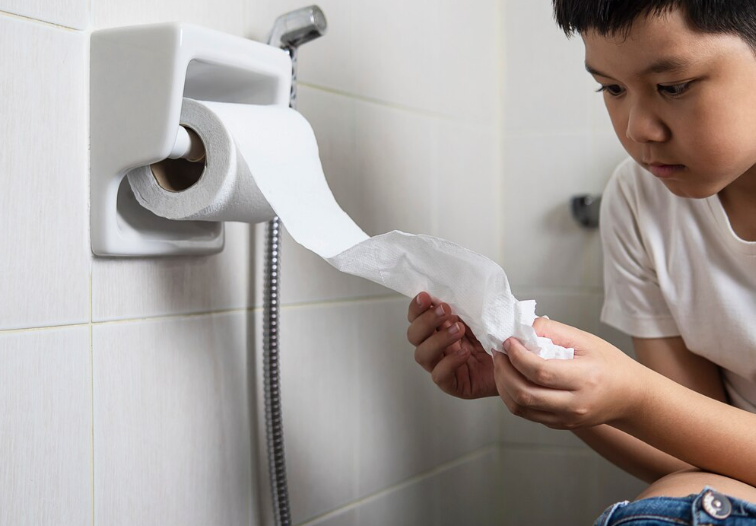More Than 3 Days of Diarrhea? Here’s What That Means for Your Child
Why Your Child Might Have Watery Stools and Vomiting
Seeing your child with watery, foul-smelling stools can be stressful. Diarrhea often comes with loose, frequent bowel movements that may vary in color—yellow, green, brown, or even white. In severe cases, there may be hardly any solid matter at all.
"Watery stools in children can have many causes, from food intolerance to infections," explains Dr. Jovitra Girubaharan, Consultant Paediatrician, Bukit Tinggi Medical Centre (BTMC) Klang. "Among the most common culprits is rotavirus, which can lead to more severe diarrhea and vomiting if not managed properly."
Causes can include food allergies, side effects of antibiotics, bacterial or parasitic infections, or viral infections like rotavirus.
How Rotavirus Usually Shows Up
Rotavirus infections typically appear 1–3 days after exposure, and the symptoms can hit suddenly. Fever, nausea, and vomiting usually start first, lasting 2–3 days, while diarrhea may continue for 4–7 days.
Children between 6–24 months are more vulnerable to severe illness, while infants under 4 months are often partially protected by maternal antibodies.
Key Symptoms to Look For
- Sudden high fever
- Profuse vomiting, making it hard to keep fluids down
- Foul-smelling diarrhea
Other symptoms may include stomach pain, lethargy, dry lips and skin, a coated tongue, and cold fingers and toes.
"Watching for these early warning signs can make a big difference," says Dr. Jovitra. "Even small changes in energy or hydration levels are worth paying attention to."
Why Dehydration Is the Biggest Risk
While fever and diarrhea are uncomfortable, the real danger for children is dehydration. They can lose water and electrolytes quickly, and their little bodies may struggle to keep up.
Early signs of dehydration
- Lethargy or unusual sleepiness
- Sunken eyes and cheeks
- No tears when crying
- Very little or no urine for more than 12 hours
- Sunken soft spot on a baby’s head (for infants)
Severe dehydration signs
- Cold hands and feet
- Pale, bluish, or blotchy skin
- Fast breathing or a racing heartbeat
- Irritability, confusion, or extreme sleepiness
- In extreme situations, seizures or coma
"Recognizing dehydration early can save a child from serious complications," Dr. Jovitra emphasizes. "Prompt use of Oral Rehydration Solution and medical attention are lifesaving steps."
How Rotavirus Spreads
Rotavirus is highly contagious, spreading through the fecal-oral route. This can happen when contaminated hands, toys, or surfaces come in contact with another child’s mouth. Daycare centers, nurseries, and homes are common sites of transmission.
Keeping Kids Hydrated: ORS to the Rescue
Oral Rehydration Solution (ORS) is a simple, effective way to prevent dehydration. It contains water, sugar, and salts to help the body absorb fluids better.
- Breastfed infants: Continue breastfeeding frequently
- Formula-fed infants: Continue usual feeds, add ORS if needed
- Older children: Offer small, frequent sips of ORS, cooled boiled water, or soup
Recommended amounts:
- Under 2 years: 50–100ml after each loose stool
- Above 2 years: 100–200ml after each loose stool
- Or roughly 10ml per kg of body weight after each episode
"Small, frequent sips matter more than large amounts at once," Dr. Jovitra says. "Even if your child vomits, pause and try again slowly."
Avoid sugary drinks or sodas, which can worsen diarrhea.
When to Seek Medical Help
Consult a pediatrician if your child:
- Is under 12 months and has persistent vomiting or diarrhea
- Shows signs of severe dehydration
- Has diarrhea lasting more than 3–4 days
- Experiences severe abdominal pain or blood in the stool
- Has underlying conditions like diabetes, kidney disease, or malnutrition
- Cannot be safely managed at home
Prevention: The Role of Vaccination
Rotavirus vaccines are available orally from 6 weeks of age. They significantly reduce severe infections and hospitalizations, offering strong protection against the illness.
Keeping Your Child Safe and Comfortable
Watery diarrhea and vomiting can be alarming, but most children recover well with proper hydration and care. Early use of ORS, monitoring for warning signs, and vaccination are key steps to prevent complications and help your child bounce back quickly.
"With timely care, attentive hydration, and vaccination, children usually recover fully and quickly," Dr. Jovitra adds. "Parents play a vital role in spotting early warning signs and acting promptly."
Dr Jovitra Girubaharan, Consultant Paediatrician
Bukit Tinggi Medical Centre (BTMC) Klang
✅ At Bukit Tinggi Medical Centre (BTMC) Klang, we provide the complete range of childhood vaccinations, including DTaP, MMR, varicella (chickenpox), and rotavirus vaccines, ensuring your child is fully protected in a safe and comfortable setting.
Visit: Kids Vaccination Package
Promotion currently running till 31st December 2025






